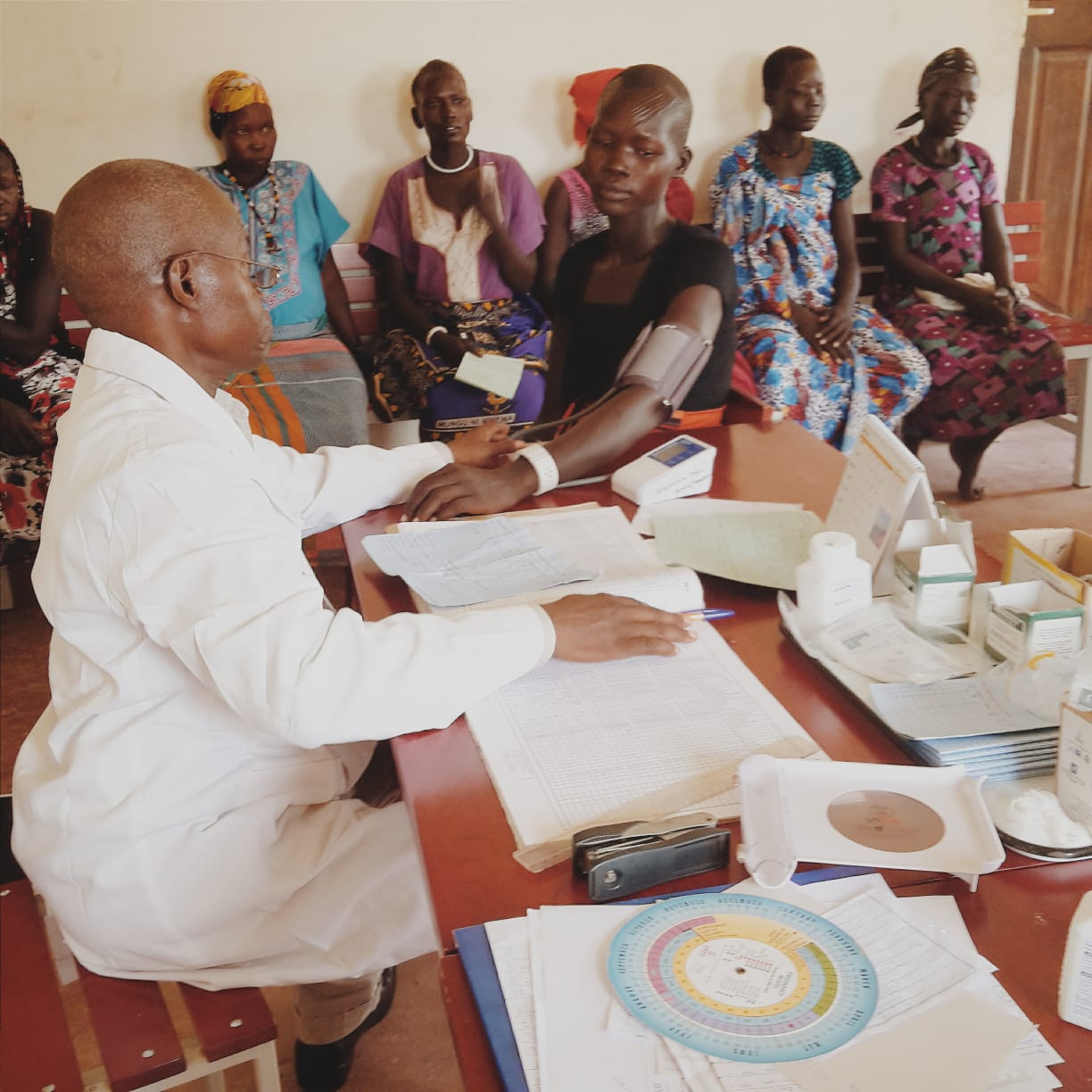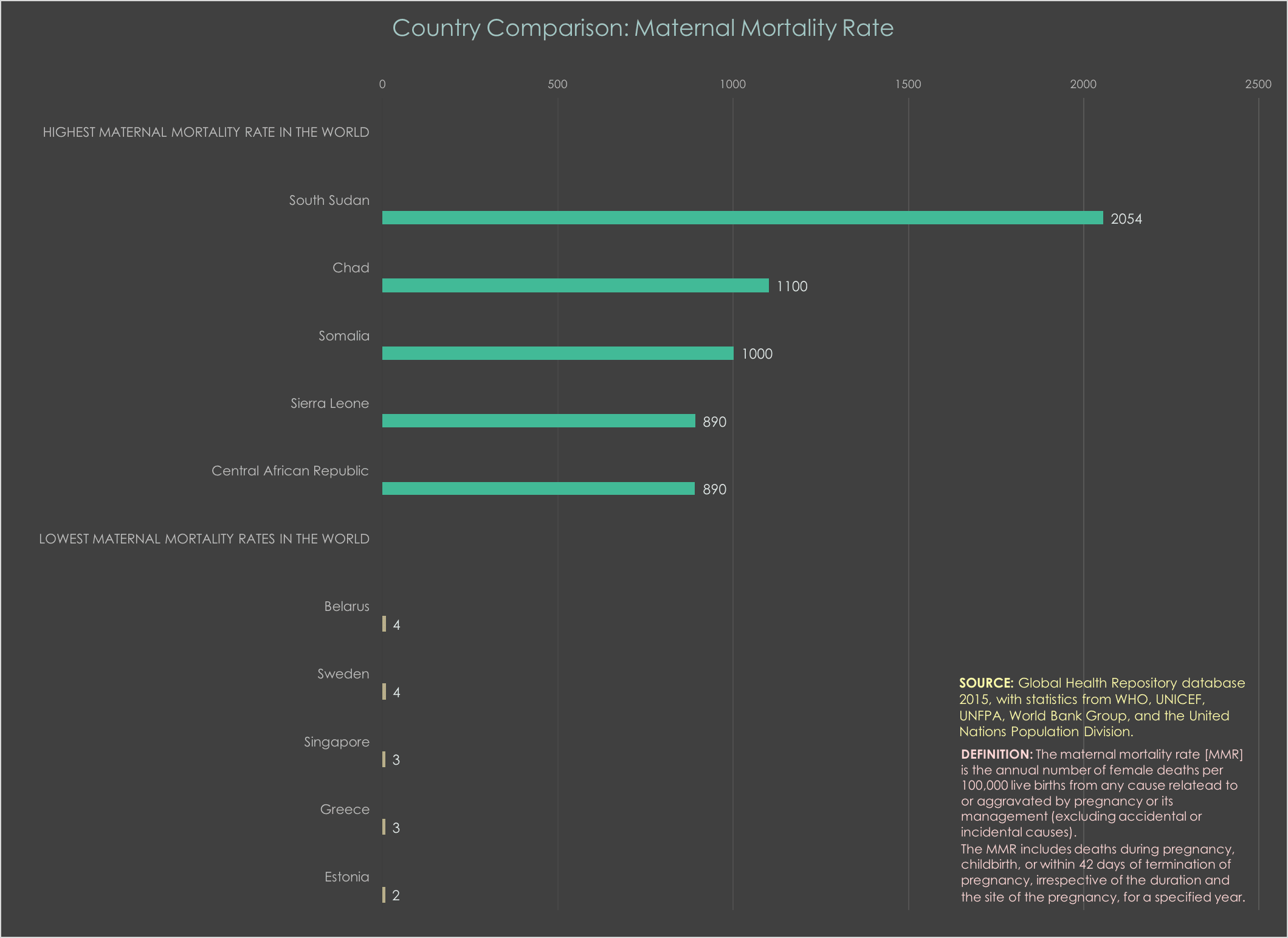Dispatches from the IGAD Regional Initiative: Training Midwives for Safe Pregnancies in Terekeka, South Sudan
Mr. Silvanus Odukis, a qualified Kenyan nurse-midwife with over 30 years of maternal care experience, knows the inherent challenges of giving birth in South Sudan, one of the world's deadliest countries to give birth.
The last national health survey, done in 2006, estimates that 2,054 deaths occur per 100,000 live births, which translates to one in seven women dying due to pregnancy-related complications. By comparison, the maternal mortality rate in neighbouring Kenya is 510 maternal deaths per 100,000 live births, while the rate in Norway is five maternal deaths per 100,000 live births.
Mr. Odukis has lived in South Sudan since 2012. He initially worked in the northern city of Bentiu. He's now based in Terekeka, on the banks of the Nile River. This town can be reached by driving three hours north from Juba, the country's capital, along a bumpy dirt road, which was carved out in 2007.
Before Mr. Oduki's arrival in October 2015, the Terekeka Primary Healthcare Centre barely received an average of five pregnant women per day.
But when word got around that he was training local midwives and nurses and supporting Dr. Emmanuel Fredrick, the clinic's director, in handling complicated antenatal cases, more women started going to the clinic.
Today, the health centre receives an average of 30 women per day.

Mr. Odukis implemented basic but important record keeping on patients' medical information which was not a common practice prior to his arrival. Photo: Elena Sosa Lerín/UNDP
One of the main challenges for pregnant women and girls as well as health practitioners in rural areas is access to healthcare facilities in a country with no paved roads outside its capital.
Many of the women attending the health centre in Terekeka live as far as 25 kilometres away. They walk for hours on dirt roads under the scorching sun because, as Dr. Fredrick explains, the women feel the antenatal care they receive makes a positive difference in their pregnancies.
Mr. Odukis' work in Terekeka is possible thanks to the support of the governments of Ethiopia, Kenya, and Uganda through a capacity development initiative by the Intergovernmental Authority on Development (IGAD), an eight-country regional development block in eastern Africa, as well as the government of South Sudan.
This initiative aims to strengthen the capacity of the South Sudanese civil service at a national and sub-national level. It accomplishes this by lending out seasoned civil servants from these three IGAD countries — known as Civil Service Support Officers (CSSOs) — and pairing them up with South Sudanese counterparts, usually referred to as "twins."
Their relationship is one of mentoring, coaching, and close collaboration.
Since 2011, more than three hundred CSSOs, working on two-year contracts, have come to South Sudan to support capacity-building efforts in different sectors like agriculture, aviation, finance, and public health. Their salaries are covered by their own countries while other expenses are paid for by the government of Norway, the project's sole donor. The United Nations Development Programme (UNDP) is responsible for the coordination and implementation of the initiative.
Driven by the conviction that pregnancy should not negatively impact long-term health, Mr. Odukis joined the IGAD Initiative after learning about the alarming shortage of nurses and midwives in South Sudan. The latest statistics show there is one physician per 66,000 people and one midwife per 39,000 people.
Studies by the United Nations Population Fund (UNFPA) show that midwives can help prevent two-thirds of all maternal deaths. They also explain that almost 90 percent of essential care for women and newborns can be performed by an educated midwife.

Source: Global Health Repository database 2015, with statistics from WHO, UNICEF, UNFPA, World Bank Group, and the United Nations Population Division.
Definition: The maternal mortality rate [MMR] is the annual number of female deaths per 100,000 live births from any cause related to or aggravated by pregnancy or its management (excluding accidental or incidental causes). The MMR includes deaths during pregnancy, childbirth, or within 42 days of termination of pregnancy, irrespective of the duration and the site of the pregnancy, for a specified year.
Mr. Odukis mentors his twins — three nurses and one midwife — in providing general medical care and support for issues such as anemia, deworming, malaria, and the prevention of mother to child transmission of HIV.
The twins also learn how to advise pregnant women and girls on diet, hygiene, and recognition of danger signs. Their training is not focused exclusively on safe deliveries. Mr. Odukis also educates them on post-natal check-ups, breastfeeding issues, and newborn care practices.
It is difficult to attend to pregnant women and girls when violence erupts.
While working in Bentiu in 2012, fighting broke out between Sudanese and South Sudanese forces. Mr. Odukis and his twins stayed put and worked around the clock to protect and look after for the area's women and girls, despite the conflict.
When the latest wave of violence took place in July 2016, the women and girls of Terekeka were attended and cared for by Mr. Odukis and his twins, who remain committed to their work, despite the precarious and uncertain conditions prevailing in the country.
While many of the reasons for pregnant women and girls dying in South Sudan are the same as in other parts of the world — hemorrhages, infections, or delivery complications — Mr. Odukis explains that these are magnified by the lack of medical equipment and supplies, basic resources including electricity and water, and trained personnel, like anesthesiologists.
Therefore, to improve access to and quality of care, increased funding and resources are required. This could make a real impact in the lives of thousands of women seeking antenatal assistance, as well as in the lives of the midwives and nurses that aim to assist them.
Despite these challenges, the twins, mostly senior women, feel proud of what they have learned from Mr. Odukis. All of them express a desire to learn more techniques and better care practices, which is often limited due to a lack of medical resources.
"We do the best that we can with what we have," says Dr. Fredrick, "and we don't give up."
► A version of this story was originally published on September 2016 in the website of the United Nations Development Programme (UNDP) in South Sudan.
Follow me on Twitter: @e_sarin. Email me your thoughts, suggestions, or critiques at: elenasosalerin@gmail.com.